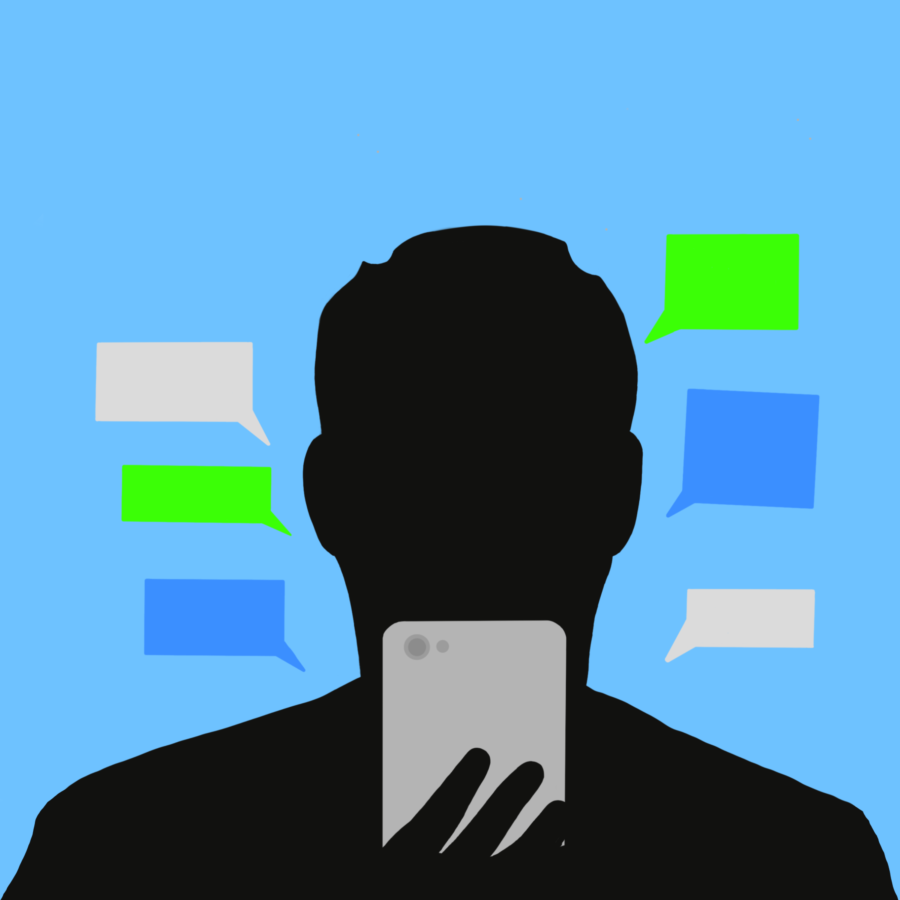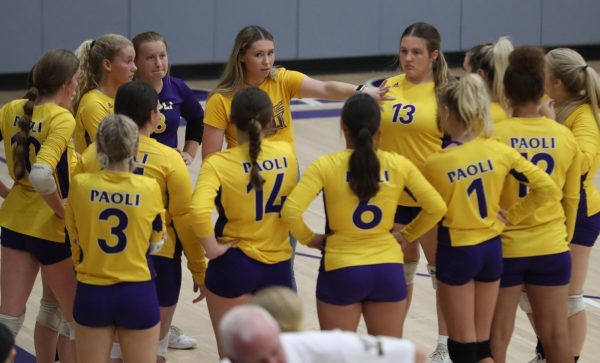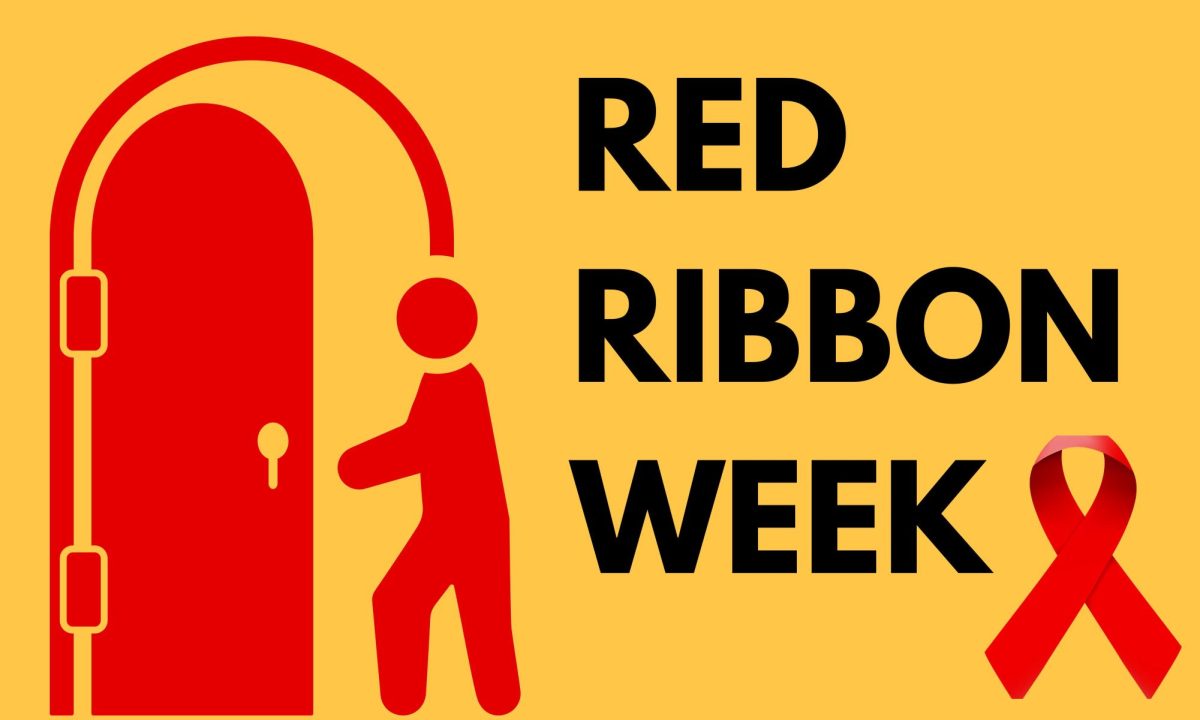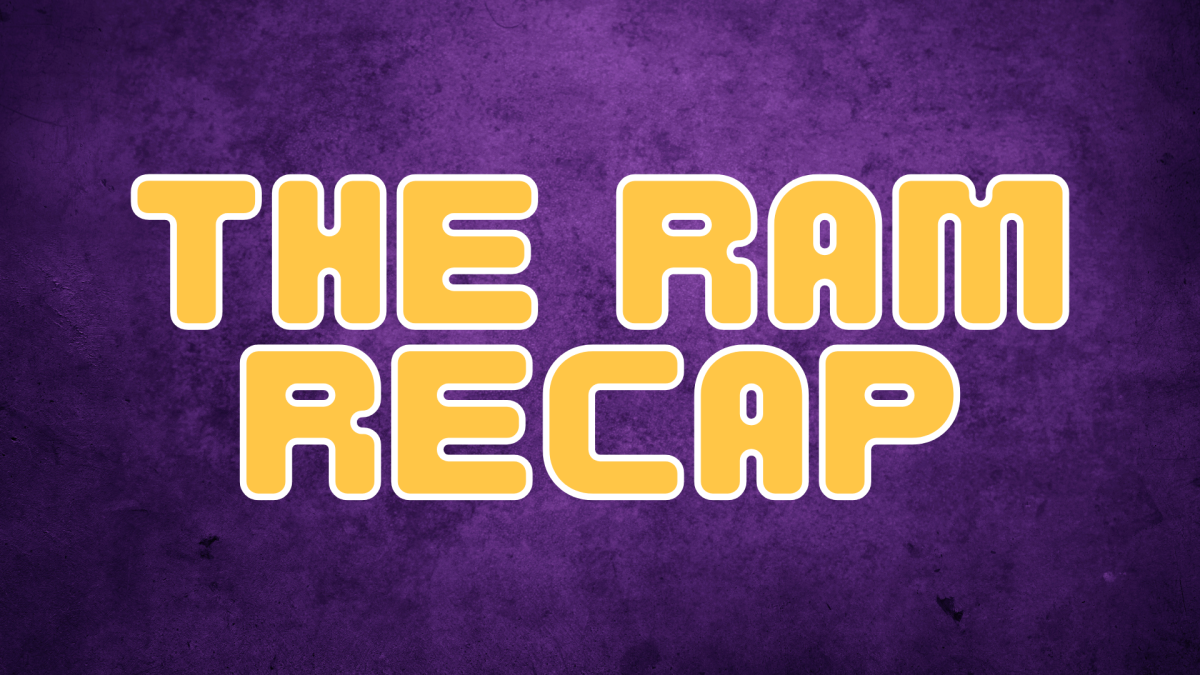Step Away from the Screen
October 1, 2021
Platforms Become More Toxic When Mixed with Misinformation
Since the very birth of social media, it’s use has been a highly debated and controversial topic. It’s destructive – rotting youth’s brains, destroying their capacity for empathy, ruining people’s ability to distinguish between what’s real and what’s fake. We’ve heard it all. On the other hand nothing can bring people together quite like the latest Tik Tok dance trend.
No one is more aware of the impact of social media than the most active users: teenagers (that’s us!). Because we are so often engaged in social media, we know firsthand the impact it can have on our lives. It’s no secret what’s going on in the head of a teen isn’t always pretty and the majority of us struggle with our mental stability on a daily basis. Many times, the issues can be traced back to social media and its hold on us.
Common byproducts of social media usage are not limited to depression, anxiety, body dysmorphia, eating disorders, etc. These occur in response to the content we’re being presented with, whether it’s false narratives on issues related to health care being pushed, the consumption of overwhelmingly hateful material, or a more personal encounter of online drama and cyberbullying.
Quarantine
Especially now, in the midst of a pandemic, we are susceptible to a decline in emotional well-being and either the influx of new mental illness symptoms or the worsening of preexisting ones. Coupled with exposure to the toxicity of online platforms, our online world is a lethal combination with the potential to lead one down a very difficult path.
When quarantined, we spent enormous amounts of time scrolling through feeds and this increase in screen-time on social apps can be extremely detrimental to one’s state of mind – depending on what it is you’re looking at.
Staff’s Answer’s
Since our staff consists solely of teenage students, we thought they’d be the perfect people to ask for opinions on and personal experiences with social media.
We asked which social media platform our staff found to be the most toxic and the answers were all over the place. Several students said Instagram, due to the false image many users convey and the use of editing apps like FaceTune that take it even further. Some replied with TikTok because of the diversity of views on different subjects and the tendencies of people to attack those with perspectives other than their own. Twitter and Facebook were mentioned for the seemingly constant gossip on them. Students also said Snapchat because of the anonymity of the platform and the fact users so often bash other users on it.
On Being Aware
On the contrary to the leisurely use of social media, we rely on social media to receive our news and get the latest updates – now more than ever. In the age of the coronavirus, factual accuracy is of the utmost importance. One would think that would be easy to determine, right? Wrong. So much misinformation is spread which can easily fool people, whether you’re typically naive or not. This can be extremely harmful for people who take highly liked posts as gospel and take advice for things off of platforms without checking up on the source or consulting anyone else.
People take advice everyday for physical health, mental health, etc. that could seriously hurt them. For example, someone might watch a TikTok on how someone lost a lot of weight and follow that person’s routine when it may not be right for them physically or mentally. This can lead to eating disorders and other health issues. People give mental health advice as well, making others think that professional help isn’t necessary and likely making their problems worse.
The Upside
Although there are probably more negative sides of social media than you can count, it has its perks too. Mainly, people are able to stay connected with one another. This was particularly evident in 2020, when families and friends were separated all over the world without much ability to remain active in each other’s lives. So many moments were missed in-person due to the coronavirus, though they were posted on social media platforms for those people to see. It may not have been the same as if they’d been there physically, but it was better than nothing as one of the only forms of interaction available.
Social media has its upsides and downsides, but overall the emphasis should be put on the mindset and attitude of the user.
We are responsible for how we approach social media, how seriously we take it. It is our job to always be mindful of the content we’re consuming, however significant or trivial, whether it’s a news report or a TikTok gag. In order to protect our mental health and prevent ourselves from contributing to the spread of false information, we’ve got to stay aware.
Staff Editorial










